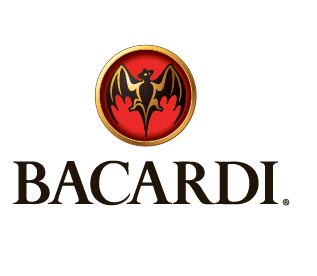Spanish Legal Setback for Bacardi
 Spain’s Supreme Court ruled against Bermuda headquartered Bacardi Ltd. on Thursday [Feb.3] in a long-running legal battle with rival Pernod over the rights to the Cuban rum trademark Havana Club in a potentially precedent-setting case involving private property seized by Cuba’s Communist regime.
Spain’s Supreme Court ruled against Bermuda headquartered Bacardi Ltd. on Thursday [Feb.3] in a long-running legal battle with rival Pernod over the rights to the Cuban rum trademark Havana Club in a potentially precedent-setting case involving private property seized by Cuba’s Communist regime.
Bacardi is now planning the next legal move to protect its ownership and trademark rights to the Havana Club brand in Spain. The company said the Spanish Supreme Court recognised nearly all the legal merits presented on the legitimacy of Bacardi’s rights and registration of the Havana Club rum trademark in Spain but was “disappointed” that the court ruled in favour of Havana Club Holdings on “the legal technicality of a statute of limitations.”
Pernod and Bacardi have been embroiled in legal battles in Spain and the US for years. Bacardi claims it has the rights to the Havana Club trademark for the US because it bought them in 1994 from Cuba’s Arechabala family, the founders of the brand in the 1930s. The Arechabala family was stripped of its properties by the Cuban government followingthe 1959 revolution.
Bacardi argues that the move by the Cuban government was illegal, and it released its own Havana Club in the US in 2006. Spain and the US are the leading markets for the Havana Club brand.
In its ruling, Spain’s Supreme Court declined to take a stance on the legality of the expropriation under Cuban decrees which nationalised the country’s entire economy. The court added that its decision against the plaintiffs, Bacardi and the Arechabala family, is based on the fact that the legal registration of the Havana Club brand in Spain, under the Arechabalas’ ownership, expired in the 1960s and was later lawfully renewed and taken over by the Cuban government.
The court did rule the transfer of the trademark registration of Havana Club rum in Spain by Cuba and its partners violated Spanish public law. The court also said in its decision that Havana Club Holdings “does not deserve to be considered a good faith third party purchaser of the Spanish trademark of Havana Club,” and noted that the company Jose Arechabala, S.A. (and Bacardi as its successor) was illegally deprived in Spain of the Spanish trademark registration for Havana Club. The court, however, said it could not restore the Spanish trademark registration to Bacardi only on the grounds of a technicality involving the statute of limitations for a claim.
“This decision clearly supports and recognises the rights of the original owners of Havana Club, the Arechabalas and Bacardi, as its rightful successor,” said Séamus McBride, Bermuda-based president and CEO of Bacardi.
Bacardi said it is “critical to note that Spain’s high court ruled that Spanish law does not recognise the validity of the acquisition by Cuba and its partners of the Spanish Havana Club trademark registration on the basis of the confiscation of HAVANA CLUB ordered by the Cuban State in 1960.”
Bacardi has and will continue to defend its position in the wake of ongoing and inaccurate allegations by Havana Club Holdings surrounding the legitimacy of Bacardi’s rights and ownership of Havana Club rum, said the company.
Bacardi, Jose Arechabala, S.A. and members of the Arechabala family sued Havana Club Holdings, Havana Rum and Liquors, S.A., Cubaexport and the Republic of Cuba in 1999 in Mardrid’s Court of 1st Instance No. 54 to invalidate the Cuban entities’ transfer of the Havana Club trademark in Spain from Jose Arechabala, S.A.
As Bacardi and Jose Arechabala, S.A. have asserted for the past 12 years, and Spanish courts have not contested, Bacardi legally owns the rights to the Spanish Havana Club rum brand, having purchased the trademark from the original legal owners, creators and proprietors of the brand.
The Arechabala family created Havana Club rum in Cuba in 1935 and sold their rum in Spain and other countries. In 1959, the Arechabala’s Havana Club brand and other assets were confiscated by the Cuban government without compensation.
In the early 1990s, Cuba signed an agreement with French based Pernod Ricard to exploit the confiscated brand globally through a joint venture called Havana Club Holdings.
The Provincial Court or Madrid ruled that confiscation is not a valid right to ownership for Spanish brands. Trademarks are territorial and civilized nations around the world do not recognize claims to ownership of trademarks based on foreign confiscation.
Bacardi said it is important to note that the Arechabalas never gave up their rights to the brand and were seeking to revitalise it, but lacked the financial backing to do so, because of “the illegal confiscation of their company and personal assets by the Cuban government.”
The company has won all US court cases relating to the rights to use the Havana Club brand, up to the US Supreme Court.
Most recently in April 2010, a US federal court also recognized that Bacardi “acquired any remaining rights to Havana Club, as well as the recipe from the Arechabala family. The First Amendment protects Bacardi’s ability to accurately portray where its rum was historically made.”
US District Judge Sue Robinson also wrote Pernod Ricard USA showed “no evidence that today’s Havana Club rum product (made by Bacardi) differs from the original pre-revolutionary Cuban rum in any significant respect.”
In her 22-page ruling, Judge Robinson also found that Bacardi’s Havana Club rum “has a Cuban heritage,” derived from a family recipe first used in Cuba around 1930.


If anybody is interested in obtaining a case docket with the up to date information on this case or any other case, visit http://FreeCourtDockets.com , no pacer id required. You have to know the case number and court name which you can obtain from other online resources.